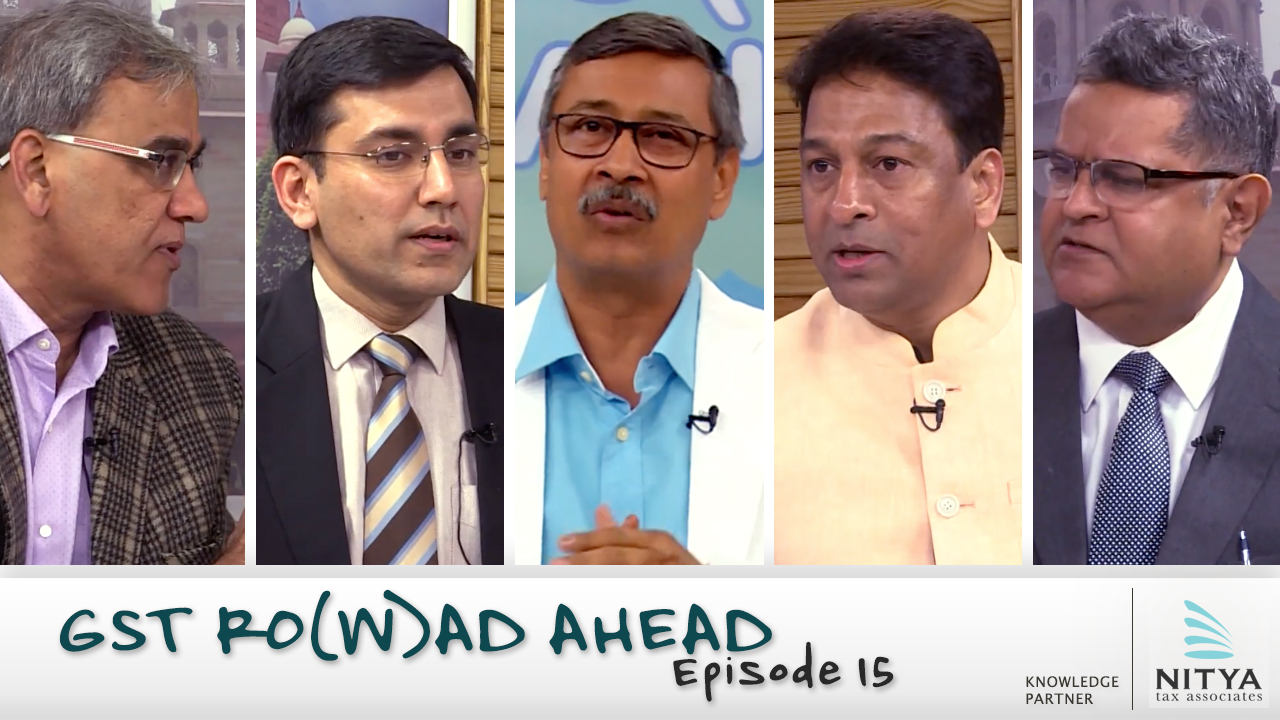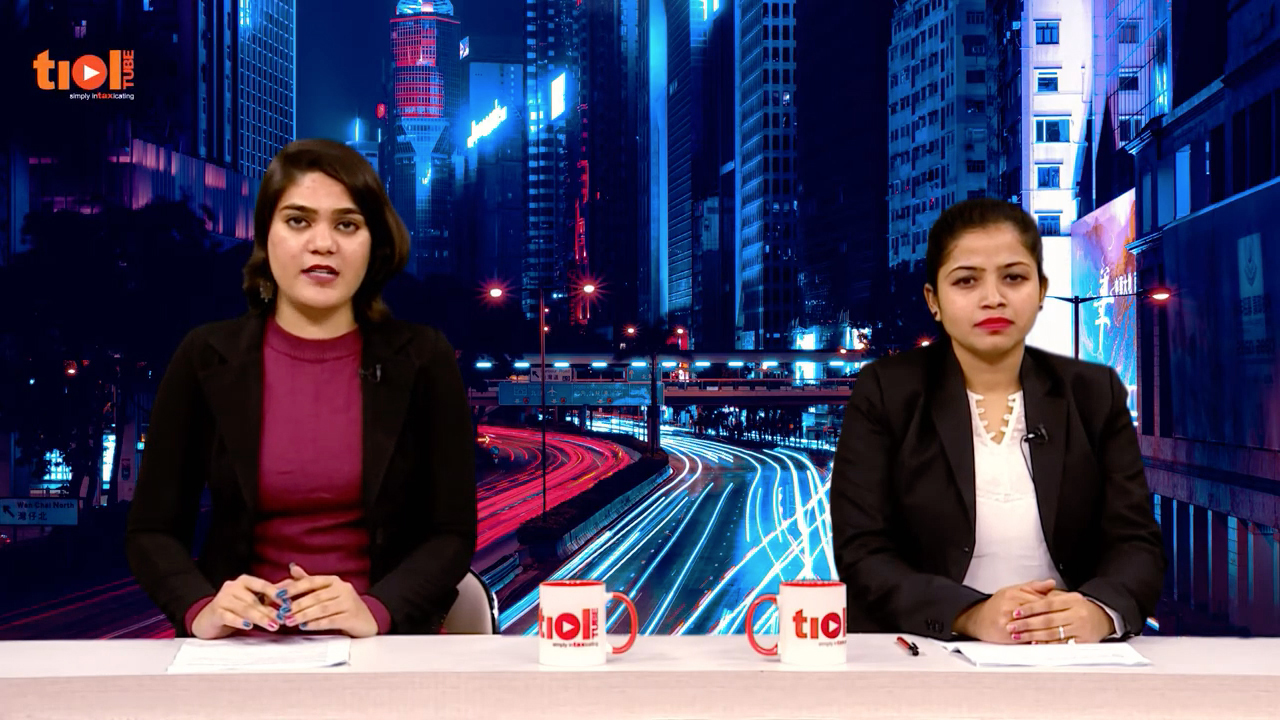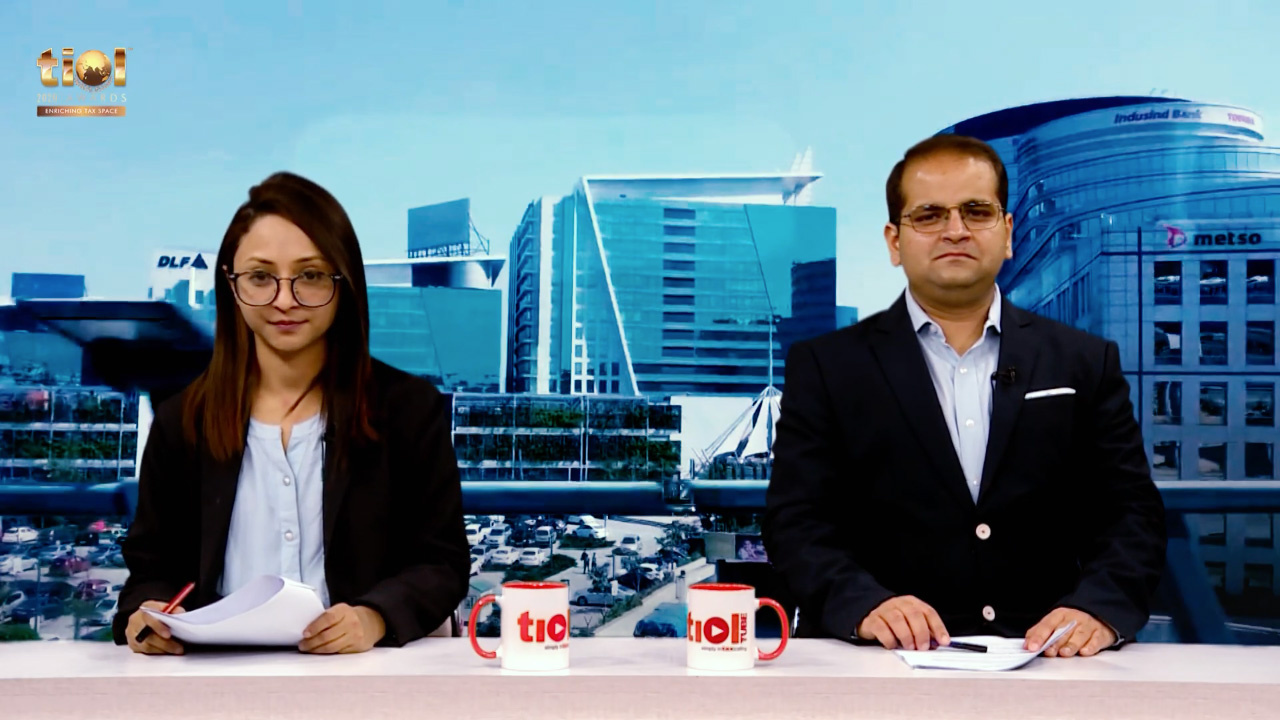|
SERVICE TAX
ST - SCNs were issued alleging that the Appellant is liable to pay service tax under the category of "construction of complex" services as defined under section 65 (30a) of the Finance Act, 1994 for construction of quarters for Bhopal Development Authority - demand confirmed, hence appeal.
Held: The definition of a "residential complex" leaves no manner of doubt that it would be a complex comprising of a building or buildings, having more than twelve residential units - In other words, a complex may have a building having more than twelve residential units or a complex may have more than one building each having more than twelve residential units - Independent buildings having twelve or less than twelve residential units would not be covered by the definition of "residential complex" - In the present case, the appellant had constructed independent buildings having one residential unit only - Thus, even if the appellant had constructed more than 12 independent buildings, the nature of activity would not be "construction of complex" and, therefore, the service tax could be levied - definition of "construction of complex" and a "residential complex" continue to remain the same after 1 July, 2012 and, therefore, service tax liability could not have been fastened even after 1 July, 2012 under "construction of complex" - impugned order is set aside and appeal is allowed: CESTAT [para 13, 20, 22]
- Appeal allowed: DELHI CESTAT
ST - Alleging that the appellant is undertaking contracts for M/s BSNL for laying and jointing of optical fibre cables and on the consideration received under these contracts, they have not paid any service tax, demand notice dated 21.04.2011 was issued demanding tax of Rs.90,70,559/- - Commissioner confirmed the demand along with interest and also imposed penalties and late fee - appellant is in appeal before CESTAT and submits that the applicability of service tax on laying of cable under or alongside roads was clarified by CBEC vide circular No. 123/5/2010-TRU , dated 24.05.2010, S.No. 2 and whereunder it is mentioned that such service is not a taxable service under any clause of s.65(105) of the FA, 1994 and in view thereof the department is estopped from charging any service tax of laying of cables - AR submits that the clarification is in respect of Electrical Cables and not in respect of Optical Fibre Cable which is involved in the present case.
Held: Issue is no longer res integra - Issue has been examined at length by the Tribunal, Mumbai in the case of H M Satyanarayan Engineers & Contractors - 2018-TIOL-2676-CESTAT-MUM and it has been held that there is no difference between the activity of laying an electrical cable and the activity of laying an optical fibre cable and the Board circular applies in both the cases and no service tax can be charged on this activity - following the same, impugned order is unsustainable and is set aside - appeal is allowed: CESTAT [para 6, 7]
- Appeal allowed: HYDERABAD CESTAT
CENTRAL EXCISE
CX - Allegation of availment of CENVAT credit without any physical receipt of inputs - In remand proceedings, penalty of Rs. 20 lakhs has been imposed on Neeraj Thakur, Director of M/s VKM Electricals Limited (VKM) and penalty of Rs. 25 lakhs each have been imposed on all the co-appellants who are C&F agents - Against the said order, the appellants are before CESTAT.
Held: Adjudicating Authority has not considered the legal issues raised by the appellant while imposing penalty on the appellants - It is a fact on record that the appellant was mere Director of that company but was not looking after the business affairs of that company - It is also revealed from the statement of V. K. Madan who admitted that he was looking after affairs of the company - penalty on Neeraj Thakur is not imposable since actual involvement of the appellant is required to penalise under Rule 26 of the Central Excise Rules, 2002 - insofar as penalties on C&F agents are concerned, same have been imposed on the basis of the statement of the transporter and records recovered from the premises of M/s Ujala Electricals Limited (UEL) - Such penalty is not sustainable as the statement of transporter was not examined-in-chief while adjudicating, therefore, the said statements are not admissible as is evidence - no other corroborative evidence has been brought on record that the appellant have not supplied the goods to UEL - impugned order qua imposition of penalty on all the appellants is set aside and appeals are allowed with consequential relief: CESTAT [para 9 to 12]
- Appeals allowed: DELHI CESTAT
CX - CENVAT - During scrutiny of returns, it was noticed that the assessee had taken 100% Cenvat credit on pig iron moulds falling under Chapter 84 of CETA, 1985 by declaring them as inputs - Verification of the actual usage of these moulds, however, showed that they were attached to the main machinery and are used to carry hot molten pig iron metal received from tapping crucible to unloading point and, therefore, they are in the nature of capital goods and not in the nature of inputs - that, as per Rule 4(2)(a) of CCR, 2004, as applicable during the relevant year, the assessee was entitled to take Cenvat credit of only 50% of the total Central Excise duty paid on the moulds during the financial year and the balance in the next financial year - therefore, SCN issued for recovery of credit taken in advance and also for imposition of interest and penalty - adjudicating authority held that the credit would be available to the assessee in the FY 2006-07 and, therefore, only held the assessee liable for payment of interest - however, equivalent penalty imposed u/r 15(2) of CCR, 2004 - whereas, assessee is in appeal against the imposition of equivalent penalty, Revenue argues that the interest has not been properly computed by the adjudicating authority.
Held: On perusal of Rule 15(2) of CCR, 2004, it would show that it is a clause meant for imposition of penalty in cases where the Cenvat credit in respect of inputs or capital goods or input services has been taken or utilized wrongly by reason of fraud, collusion, any wilful misstatement or suppression of facts or contravention of any of the provisions of Excise Act or the rules made thereunder with intent to evade payment of duty - In this case, from the impugned order it appears that the Commissioner has, after going through the show cause notice, the reply in defence and other records of the case, has held that the assessee was indeed entitled to the Cenvat credit which they have availed but they have only availed it in advance - It is also clear that they have availed the credit under the head of "inputs" whereas they should have availed it only under the head of "capital goods" - In fact, the original authority allowed the entire Cenvat credit for this reason and has only demanded interest for the Cenvat credit availed well in advance - No evidence of fraud, collusion, wilful misstatement, suppression of facts which are essential conditions for imposition of penalty under Rule 15(2) of CCR, 2004 are evident either from the SCN or from the impugned order - therefore, penalty imposed upon assessee under Rule 15(2) of CCR, 2004 needs to be set aside - insofar as appeal of Revenue is concerned, the matter is remanded to the original authority for requantification of the interest involved after giving both sides adequate opportunity of being heard and presenting their case: CESTAT [para 6, 7, 8]
- Assessee appeal allowed/Revenue appeal, matter remanded: HYDERABAD CESTAT
CUSTOMS
Cus - Benefit of notification 98/2009-Cus has been denied - appellant submits that the relied upon documents mentioned in the SCN have not been given to them inspite of requesting for the same and hence the impugned order was passed in violation of the principles of natural justice.
Held: Bench is in agreement with the submission of the appellant, hence the order of the lower authorities cannot be sustained - order is set aside and matter is remanded - Since the matter is quite old, the adjudicating authority is directed to dispose of the matter in de novo proceedings within four months: CESTAT [para 4.5, 5.1]
- Matter remanded: MUMBAI CESTAT
Cus - The application for condonation of delay has been filed by assessee to condone the delay of 1,930 days in filing the appeal - The total demand is Rs.15 lakhs - On appeal, the Commissioner (A) vide the impugned order has dismissed the appeal as the assessee did not comply with the direction to pre-deposit - The High Court vide Writ Petition No. 813 of 2020 has directed the assessee to deposit a further sum of Rs.5 lakhs - It is noted that the assessee has already paid a sum of Rs.4 lakhs in regard to the demand - The assessee has made out sufficient cause to condone the delay - The Commissioner (A) has dismissed the appeal for non-compliance of pre-deposit - No purpose will be served by keeping the appeal pending in files of Tribunal as there is no order on merits - With the consent of both sides, Tribunal proceed to dispose the appeal itself - On perusal of records, it is seen that the Commissioner (A) has not considered the merits of the case - The appeal is remanded to Commissioner (A), who is directed to decide the appeal on merits - Assessee has to comply with the direction of High Court and deposit the amount of Rs.5 lakhs within the time prescribed by High Court: CESTAT
- Matter remanded: CHENNAI CESTAT
|
|











